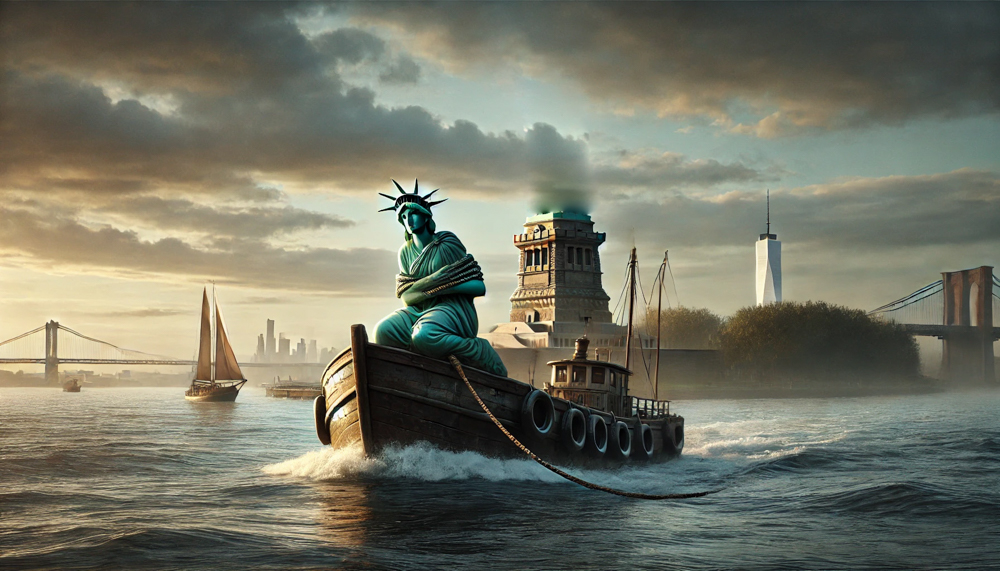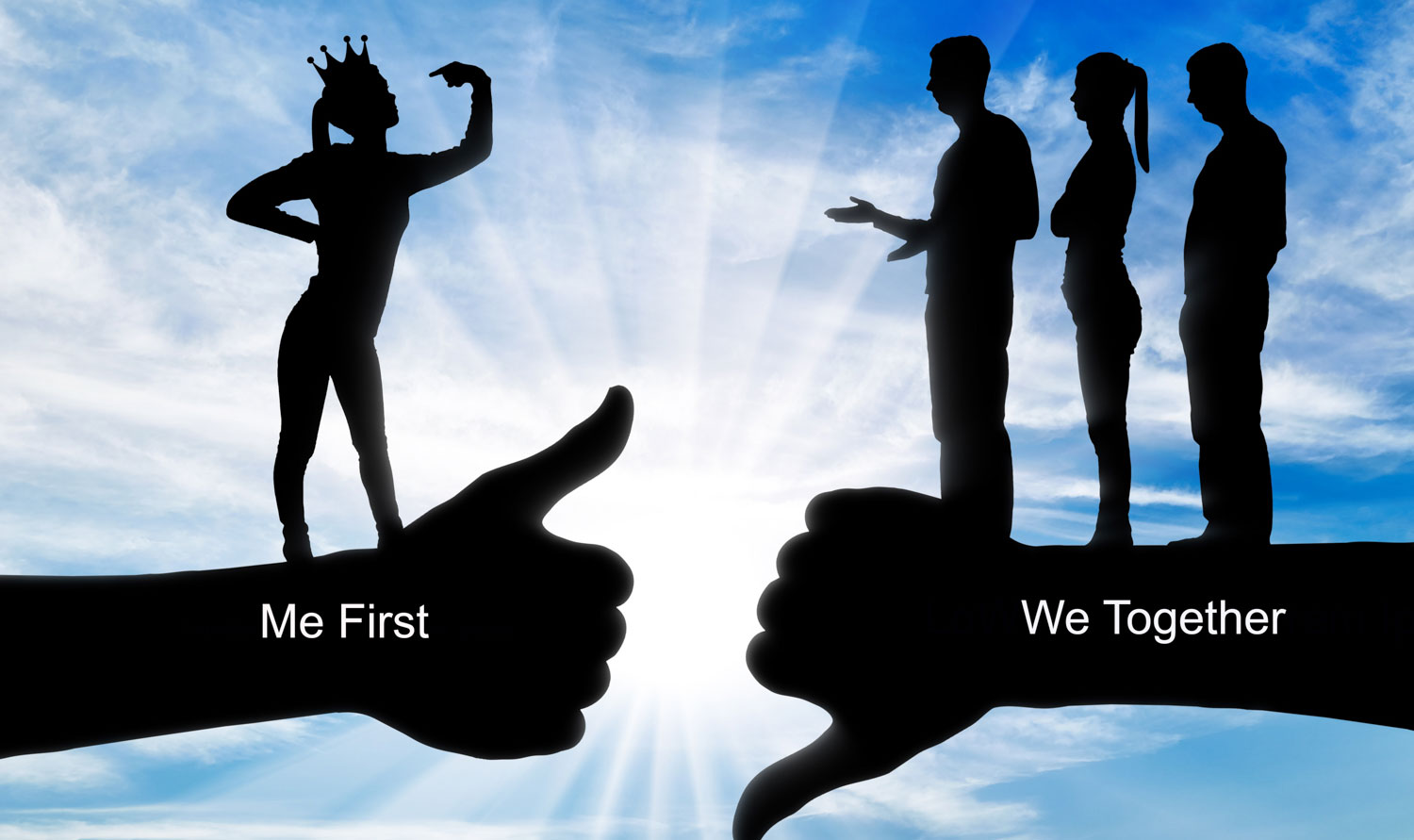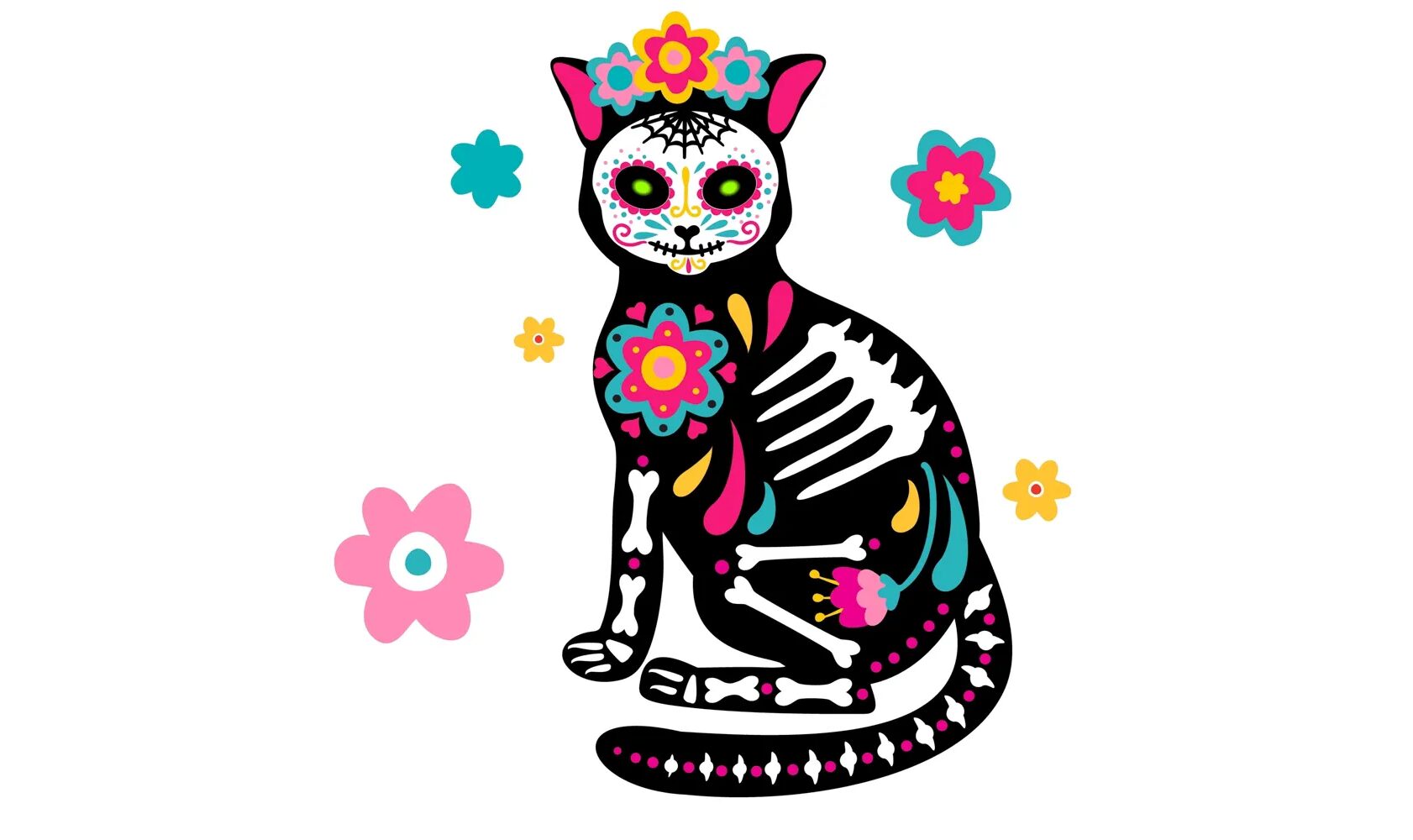Autocrats Need You To Be Stupid. Are You OK With That?
Authoritarian leaders mandate loyalty before knowledge. To be a good follower, do not think or speak for yourself.
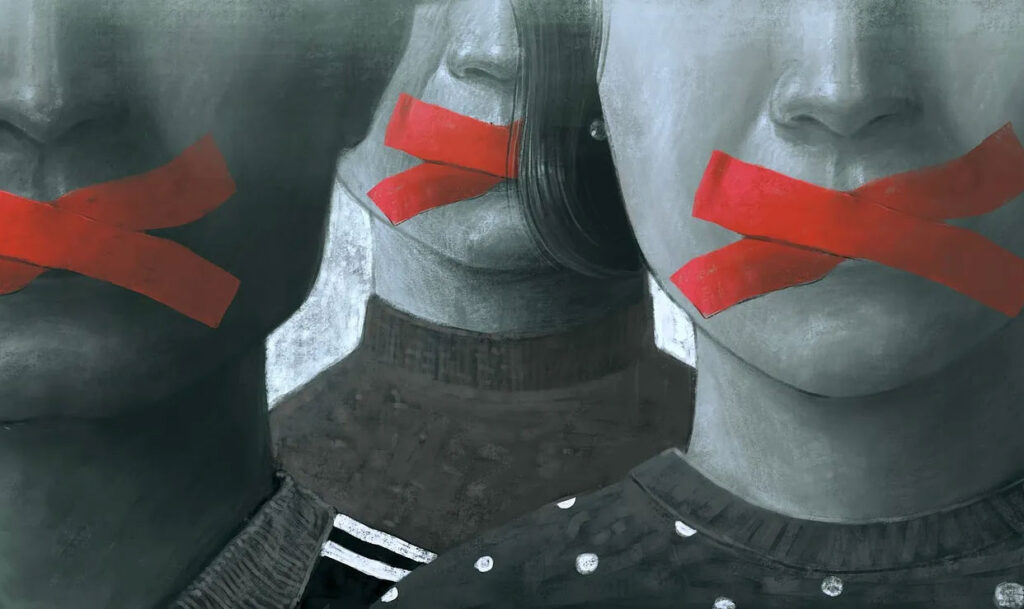
Afghanistan’s post-occupation political landscape is today characterized by an authoritarian regime with unique ideological features, including the most severe restrictions on the freedoms and human rights of any current dictatorship, particularly for women and girls.
A few months after the withdrawal of U.S. and NATO troops in August 2021, Afghanistan’s ruling party, the Taliban, announced that girls were barred from studying beyond sixth grade — or age 13, about the time when young women can begin to bear children.
Stopping their education at the age of 13 is devastating to these young adolescent girls. The Associated Press (AP) recently reported on the effect of this ruling. The AP story profiled a 13-year-old girl, Bahara Rustam, who took her last class at Bibi Razia School in Kabul on Dec. 11th. With the exception of religious education, she is unlikely to step foot in a classroom again.
Another girl, Sahibzada, is in despair for her future. She is sad about not going to school anymore to achieve her dreams. “I can’t stand on my own two feet,” she said. “I wanted to be a teacher. But now I can’t study, I can’t go to school.”
The Taliban’s suppression of women is extreme. They are barred from many public spaces and most jobs, all but confining these girls and young women in the prime of their self-discovery.
The Power Base of a Ruling Elite: An Uneducated, Disillusioned, and Fearful Citizenry
Why are these young girls, so eager to learn, restricted from exploring all of life’s mysteries and wonders? For two reasons. Firstly, the Taliban rule-makers regard women as baby factories and husband-servants. This is an extreme version of the traditional nuclear family romanticized by religious conservative men.
The second reason for denying women an education is so that they cannot talk back to the ruling elites. Ignorance begets obedience, and fear begets compliance.
The Taliban’s suppression of women finds justification in the Christian fable of Adam and Eve. Living in Paradise, Eve ate prohibited fruit from the Tree of Knowledge. God busted them by casting out Adam, who couldn’t control his woman, and Eve, the impertinent sinner. Both lost Paradise, but Eve took the blame because she disobeyed God. Women have been denigrated ever since for simply wanting knowledge.
To Be a Sheep or Not To Be a Sheep, That Is Your Choice
As it is written in the Gospel of John, chapter 10, verses 11–16:
“I am the good shepherd…I know my own and my own know me…I have other sheep that do not belong to this fold. I must bring them also, and they will listen to my voice. So there will be one flock, one shepherd.”
What is the defining characteristic of a flock of sheep? They stick together, and they follow the shepherd, their leader. You won’t find sheep debating with one another about the virtues of grazing in Pasture A versus Pasture B. You won’t find sheep that protest the ritual of Spring Shearing. When it’s time for slaughter, they go where they are told.
What Do Autocrats Want From You?
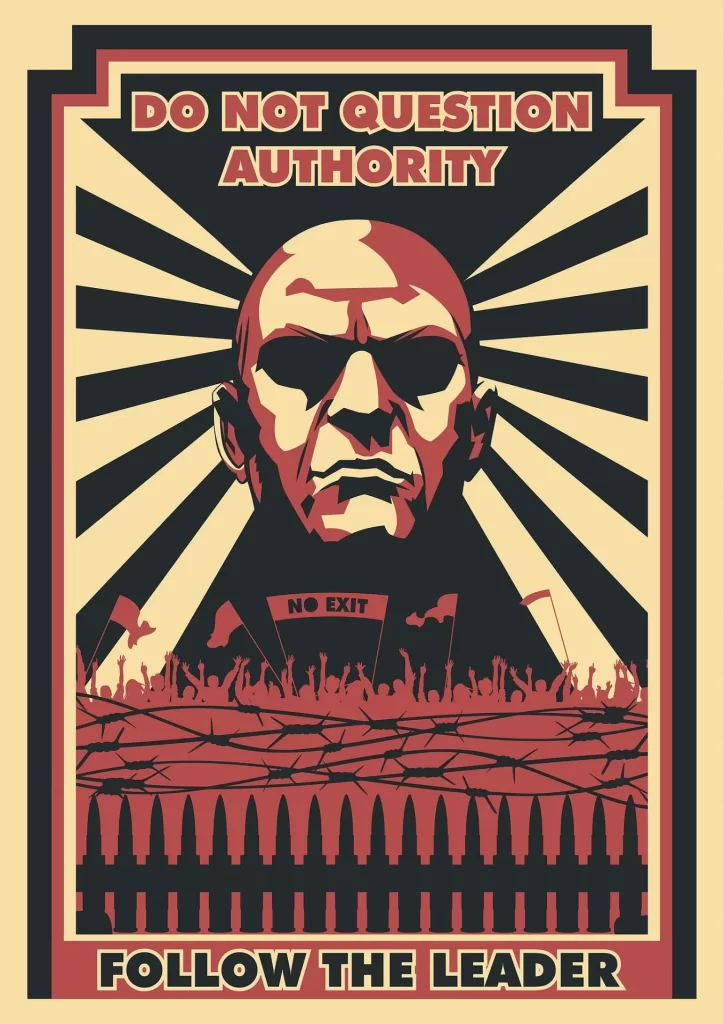
What an authoritarian leader wants most from you is your unquestioning loyalty. He (and they are almost always men) demands to be your Shepherd, and you must be his Lamb.
How does the autocrat convince you to follow him? He creates myths that paint the world as a dangerous place, an environment of existential risk from which only the autocrat can save you. Donald Trump, the former U.S. President, personified this myth when he bemoaned several manufactured social problems (like drug addicts from Mexico overwhelming the southern border) and declared, “I alone can fix it.”
This philosophy of a benevolent, iron-fisted shepherd is found in a 2019 book by R.R. Reno titled Return of the Strong Gods. Reno, who earned his doctorate in religious studies from Yale University, is a conservative who advocates for the re-establishment of the United States as a Christian nation.
For Reno, the greatest “evil” in today’s world is “openness,” a set of values that include diversity, multiculturalism, and inclusivity.
Today, the greatest threat to the political health of the West is not fascism or a resurgent Ku Klux Klan but a decline in solidarity and the breakdown of the trust between leaders and the led….Truth is a strong god that beckons us to the matrimony of assent.
The West needs to restore a sense of transcendent purpose to public (and private) life. Our time — this century — begs for a politics of loyalty and solidarity, not openness and deconsolidation. We don’t need more diversity and innovation. We need a home. And for that, we will require the return of the strong gods (Reno, p. 6).
The Favored Strategy of Autocrats? Censorship
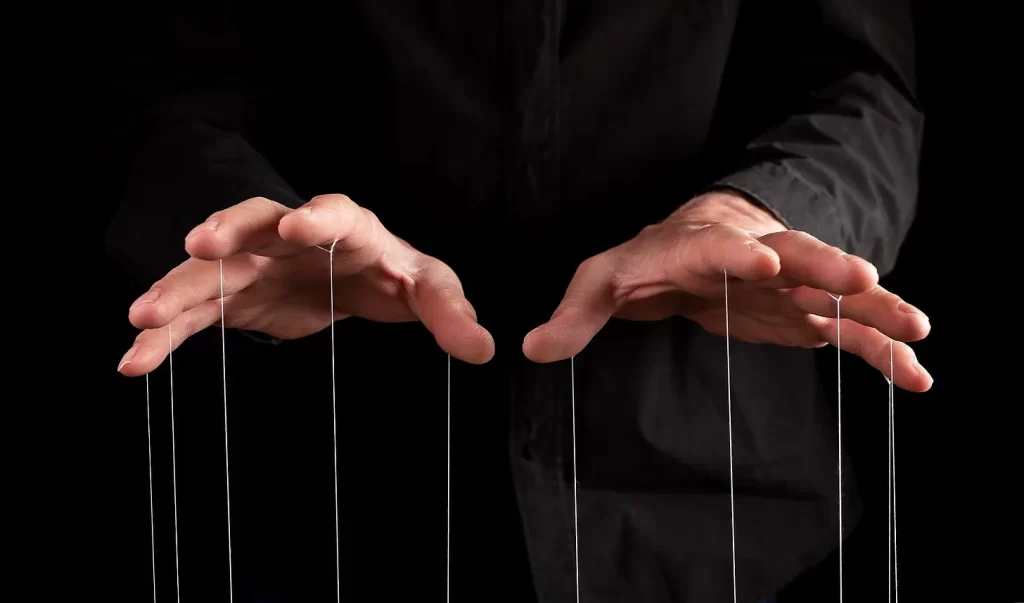
Public institutions built upon a singular and mandatory belief system use censorship as the foundation for their doctrines. From the time of its inception and for centuries thereafter, the Catholic Church prevented the circulation of texts deemed to be heretical or blasphemous.
This included books written by Gnostics, Arians, and other groups that the Church considered to be outside the mainstream of orthodox Christian belief. The Index Librorum Prohibitorum, a list of books banned by the Catholic Church, was first published in 1559. Many works by prominent philosophers and scientists, such as Galileo, Descartes, and Voltaire, were banned or placed on the Index.
The Catholic Church continued publishing an updated Index Librorum Prohibitorum until 1966.
When I Tasted the Forbidden Fruits
My personal history is one of being exposed to an approved reading list at the Catholic college I attended in the early 1960s. How I ended up in a four-year Catholic college is a long story. The short version is that my parents were Catholic and thought Catholic schools were the way to preserve my faith. The Catholic high school that I attended assigned me to the “shop track,” meaning I was destined for a career as a tradesman. Because few of my family members received a higher education, my parents wanted me to go to college before becoming a tradesman. After my considerable resistance to going to college ( I didn’t think I was smart enough), I acquiesced.
While completing the university’s application, I was asked to declare a major. I had no idea, so I chose psychology in order to learn about myself. After sending in the application, I realized I had misspelled “psychology” as pyschology. That didn’t seem to bother them. I was accepted.
At this small midwestern Catholic college, I encountered school officials who told me I could not read certain books. In my later studies, I was assigned a course textbook, a collection of essays by personality psychologists. The editors of this textbook, two nuns, praised the chapters’ authors for probing the human psyche without trespassing on the “Word of God.” In other words, the theories reported by these psychologists fit nicely within the accepted doctrinal box by not contradicting Catholic principles.
After a few years of living with censored reading lists, which I read in spite of the ban, and being taught knowledge that fitted into formulaic Catholicism, I decided that the Catholic doctrines I had learned over my lifetime made no sense. To me, Catholic beliefs in the Trinity, Virgin Birth, Ressurection, Divine Intervention, Transubstantiation, the Eucharist, mortal sin, original sin, etc., were nothing more than fictional stories worn thin by their two thousand years of retelling. They might well have been stories about Santa Claus.
During the early history of the Catholic Church, many millions of people lost their lives because they rejected Catholic doctrine (Ellerbe, 1995). My rebellion was rather benign, other than my mother’s grief about my atheism.
Autocrats who perpetuate a singular and restrictive belief system do not want you to be exposed to new ideas. Novel thinking can sabotage religious or political doctrines. Therefore, the critical thinking that is fostered through education is antithetical to authoritarian doctrine. For me, I was happy to follow Eve on her journey out of the “Paradise” of a numbing bliss associated with unquestioned obedience.
The Decline of Democracy and the Rise in Attacks on Education
Blame it on war, coups, or attacks on democratic institutions by illiberal incumbents. Whatever the reasons, the global struggle for democracy may have reached a dangerous turning point in 2022.
The gap between the number of countries that registered overall improvements in political rights and civil liberties and those that registered overall declines was the narrowest it has ever been through 17 consecutive years of deterioration.
Along with the loss of democratic countries around the world have come greater threats to education, from primary grades through universities.
Although many countries have been part of international and regional political drives to ensure that all children have access to and complete education, millions of children and young people have been “left behind” where education is repressed or made chaotic by wars.
In a report based on 2016 data,
- Around 124 million children between 6 and 15 years old have either never started school or dropped out, compared to 122 million in 2011.
- Children between 12–15 years old who should be in lower secondary education are almost twice as likely to be out of school as primary school-aged children.
- Some 31 million girls worldwide do not attend primary school.
- Some 34 million girls are absent from secondary school.
- An estimated 24 million girls may never enter school.
- Some 29 million children are not in school due to conflict and displacement, including a “lost generation” of Syrian children. (An updated list would likely include children in Ukraine and Gaza.)
In a more recent report by the Global Coalition to Protect Education from Attack (GCPEA), “more than 6,700 students and educators were reportedly killed, injured, abducted, arrested, or otherwise harmed by attacks on education in 2022.”
Higher education is also at risk globally. A nonprofit organization, Free to Think, issued a report documenting 294 reported assaults on higher education communities in 47 countries for a one-year period in 2017–2018. These incidents included:
- Violent attacks on higher education communities, including by armed individuals and groups against campuses or individual students and scholars in Afghanistan, Kenya, Pakistan, India, and Yemen.
- Wrongful imprisonment and prosecution of scholars as part of efforts to retaliate against or restrict academic conduct or expression. This year, Scholars At Risk (SAR) recorded 104 incidents of detentions, arrests, warrants issued, investigations, warrants, and other legal practices against hundreds of scholars and students.
- Detention of Uyghur scholars and students in China, including in so-called re-education camps, where they have been denied legal counsel and face severe physical and psychological abuse.
- Pressures on student expression by state, non-state, and university actors, including violent attacks, imprisonment, prosecution, and expulsions, most notably in Nicaragua.
- Ongoing threats to Turkey’s higher education sector include continuing imprisonments, prosecutions, dismissals, expulsions, and travel restrictions against university personnel and students.
- Threats to institutional autonomy, including state actions to close down or otherwise restrain higher education institutions in Central and Eastern Europe.
Education Repression in the United States
In the United States, students and faculty are not being killed, although some teachers are threatened with criminal charges and jail. Conservative officials, like Florida’s Governor Ron DeSantis, are waging culture wars against people whose personal identities have become an affront to white Christian nationalists.
Teaching about civil rights, women’s rights, sex, and the personal identities of the LGBTQ+ community has become “divisive,” meaning that local laws forbid any public school instruction on these topics. In 2023, these conservative states (Alabama, Arkansas, Mississippi, Missouri, North Dakota, Oregon, South Carolina, Texas, West Virginia, and Wyoming) have passed or are attempting to pass legislation that places severe limits on academic freedoms.
Shepherds: Benevolent or Toxic?
Shepherds guard their flocks. They are alert for danger, sometimes inserting themselves between the flock and the threat, such as defending against a dangerous predator. Good shepherds value the flock more than themselves.
What is the role of a good shepherd when the flock is made up of people, not sheep? Groups of people can experience sudden, existential dangers. At such times, benevolent authoritarianism is needed to save lives.
While I was writing this essay, a story was making international news. At the Tokyo Haneda Airport, a landing jumbo jet collided with a smaller jet preparing for take-off. The smaller jet was destroyed, and the jumbo jet was set aflame. With the jet’s PA system disabled and five of its eight emergency shoots inoperable, the 12 crew members were able to evacuate 367 passengers in eighteen minutes. All 379 people fled the burning hulk of an airplane safely.
How did the crew achieve this miracle? All of the evacuating passengers did as the crew instructed them. None panicked, none blocked an aisle because they were putting on their shoes, and none tried to collect their baggage. Like sheep, they did what they were told, and all survived.
There are times when dangers are real and when autocratic management is needed to protect those exposed to the danger. There are times when we need to be sheep.
But how real are the dangers when an autocratic government gets itself elected by manufacturing fears among the citizenry? How can you identify an autocratic leader whose self-empowerment is more important than the welfare of the nation?
One notable sign of an autocrat’s intentions (or mal-intentions) is to look at their policies on education and a free press. Repressing public education and restricting the free press means the government supports one set of doctrines designed to shore up the leader’s absolute reign of power.
Toxic leaders cannot tolerate dissent from deliberative and critical thinkers. Autocratic doctrine is meant to be swallowed whole. Anyone who chokes on this doctrine must be suppressed.
My Catholic parents wanted to strengthen my religious beliefs by sending me to Catholic schools. My exposure to these doctrines led me to reject them. Over time, my parents were open enough to accept me as a person in spite of my atheism. Not all adult children who differ from their parents’ expectations are so fortunate.
Question Authority
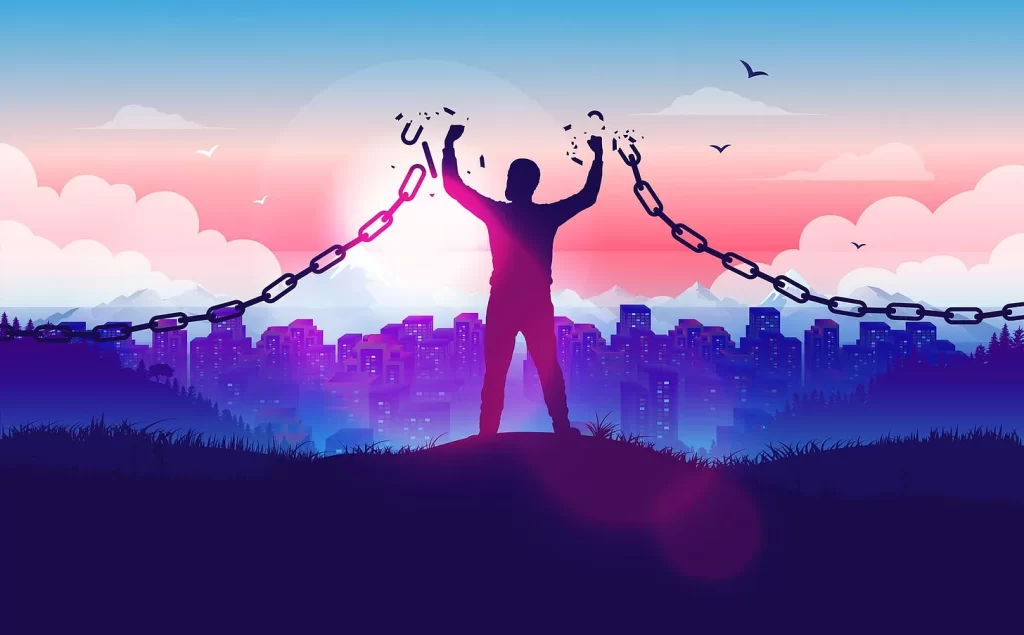
Most importantly, the lesson from toxic leaders should be that they do not care about their flocks. In Afghanistan, the young women who are denied an education are consigned to a restricted life at home where their duty is to bear babies. And yet, the autocratic government does little to protect the health threats associated with childbirth.
According to a recent World Health Organisation report, in 2017, 638 women died in Afghanistan for every 100,000 viable births, compared with 19 in the United States. This rate is more than 3000% higher than the U.S. rate — or a death ratio of one American woman to 33.6 Afghani women. The plight of Afghani birthing mothers is exacerbated by most of the gynecologists having fled the country because of the Taliban’s repressive policies.
In the United States, the ultra-conservative State of Texas denied a medical abortion to a 31-year-old mother of two, who had sought an abortion after learning that her fetus had a fatal genetic condition and that carrying the pregnancy to term could jeopardize her future fertility. Even though this woman was carrying a nonviable fetus that was putting her life at risk, this autocratic state government chose its rigidly enforced doctrine that forbids abortion over the welfare of the mother carrying a nonviable fetus.
Doctrinaire governments care more about controlling the free thinking of their citizenry than they do about the health and welfare of the people. In future essays, I will review studies showing that the lifespan of people living under authoritarian rule is shorter by several years than that of more liberal governments.
Repression of public education and a free press are early warning signs of a toxic government. For those who value the liberating energy that comes from unfettered public debates about social policy, beware of toxic shepherds who promise to protect you from mythical dangers.
Democracies are in retreat around the world. Learn to question the authorities who want to keep you quiet. Our future democracies depend on your independent and educated thinking.
Autocrats Need You To Be Stupid. Are You OK With That? References
Ellerbe, H. (1995). The Dark Side of Christian History.
Reno, R. R. (2019). Return of the Strong Gods: Nationalism, Populism, and the Future of the West.

ABOUT THE AUTHOR
Wayne Stelk
A systems thinker and psychologist exploring the good, bad, and ugly of human nature. Editor of the newsletter, Unpuzzling Life's Complexities, the science of human behavior applied to everyday events.
SHARE THese UNPUZZLINGS
Unpuzzlings
THE LATEST PUZZLE
RELATED PUZZLES
You Want Liberty? Which One?
On March 25, 1775, at a church in Richmond, Virginia, an American patriot gave an impassioned speech to his fellow townsmen, urging…
Unpuzzling Political Terrorism: Dead Catting and Gut Messaging
The history of human civilization is the story of increasing exposure to information. Access has multiplied through evolving technologies: stone…
When Religion Collides With Politics, Frozen Embryos Feel the Heat
Science and religion aren’t inherently at odds, but claiming their union is a bed of roses overlooks the thorns. Introduce…


